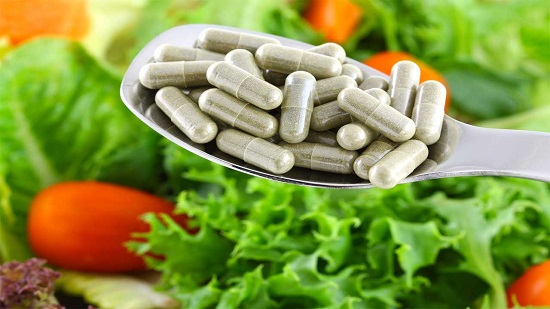For a variety of reasons, some healthcare givers often advise the use of food supplements to boost health. There is now a wide range of food supplements in the market. What should an average user know about food supplements? When should supplements be used, and how safe are they? Do they really contain all the ingredients they often tout? Dr. Olayide A Jinadu, Medical Director at Charis-Med Hospital, Lagos, warned that taking supplements in excess could do more harm to the body. GERALDINE AKUTU reports.
What are food supplements?
Food supplements, as the name implies, are food, fruits and vegetable extracts made into pills, tablets, capsules and liquids meant to supplement our diet. These supplements could be vitamins, minerals, amino acids, fatty acids and other food substances. There are two major classes of vitamins, namely, the water soluble (Vitamin B1, B2, B3, B5, B6, B12, C, etc) and fat-soluble vitamins (Vitamin A, D, E and K).
The water-soluble vitamins are easily excreted from the body and so; they can be taken daily and can hardly cause problems if taken in excess. However, the fat-soluble vitamins are not easily excreted from the body and so should be taken at specific doses in order to prevent harm from excess intake.
Minerals help in the normal day-to-day activities of the body. For instance, iron is important for oxygen transport in the blood. Calcium is fantastic for strong bones and teeth. Other minerals are zinc, sodium and chloride, among others.
Amino acids are the building blocks of protein needed for the purpose of bodybuilding; building strong body immunity along with healthy skin and hair. Fatty acids are building blocks of fats and oils needed for energy.
It must be noted that supplements are not a substitute for a balanced healthy diet. This implies that the recent hype about supplements is over rated. Point to note, taking supplements would never treat hypertension, diabetes mellitus and asthma, among others, as some claim.
People take food and vitamin supplements because they are made to believe it is required in our daily diet from adverts and food supplement marketers. This is not entirely false. However, most of these supplements are already present in a good balanced diet.
Do persons need to take supplements?
Supplements are particularly necessary in women of childbearing age, pregnant women, individuals on specific medication, patients recovering from one ailment or the other, menopausal women and the elderly generally. For instance, an adequate foliate (also known as folic acid found in dark green vegetables) status can decrease the risk of having a baby with neural tube defect such as spina bifida. One tablet should be taken by pregnant women daily. Another example is the importance of amino acids in recuperating patients and iron in childbearing women, as they lose iron every month from their monthly cycles.
Post-menopausal women need calcium among other supplements because one of their hormones, oestrogen decreases drastically. This hormone helps in strengthening the female bone with the help of calcium. However, once a woman reaches menopause, this hormone is withdrawn from her system, making her bones weaker as she ages (this also explains why osteoarthritis is common in elderly women). It should be noted that this is also one of the hormones responsible for fertility, further explaining why a post-menopausal woman would not get pregnant.
How safe and beneficial are supplements?
Yes, they are safe for human consumption and the benefits are far reaching. They help ensure a stable and strong immunity against infectious diseases, however not against such non-communicable diseases as hypertension, cancer and diabetes, among others. In fact, some can worsen cancer cases. Supplements are actually a fantastic means to primary prevention against some diseases. The word here is prevention, not necessarily treatment of diseases.
Are there side effects of too much supplements?
Generally, taking an overdose of supplements presents with nausea, constipation, diarrhoea, skin rashes, hair loss and nerve damage, among others. As stated earlier, some vitamins are more liable to overdose than others. The fat-soluble vitamins are more liable to overdose because they are stored in the body, unlike their water-soluble counterparts.
An overdose of vitamin A can present as blurry vision, swelling of the bones, dizziness, nausea and vomiting, bone pain and sensitivity to sunlight, among others.
Vitamin D overdose may present as fatigue, loss of appetite, weight loss, excessive thirst, dehydration, excessive urination and constipation, among others. Vitamin E overdose may present as nausea, constipation, diarrhoea, headaches, fatigue, easy bruising and bleeding, while Vitamin K overdose may present as blood clotting problems.
Overdose from vitamins are rarely fatal. However, some supplements are known to accelerate the growth of cancerous cells, for instance folic acid. This is a supplement that innocently helps in accelerating the growth and multiplication of fast growing cells like the human hair, nails, blood cells, sperms and the developing embryo. But is also found to encourage rapid growth of cancer cells, which are also rapidly growing cells.
How can one tell if he/she is taking good quality supplement? What does standardised label on a supplement mean?
The supplement must be FDA (Federal Drug Agency) approved. Standardised label means that the supplement you are buying agrees with the daily requirements of each of the constituents contained in the supplement set by the Federal Drug Agency.
I would advise the public not to attach too much importance to food supplements, as they can never replace a healthy balance diet. Why waste so much money, when you can get these same vitamins from available fruits and vegetables? I would say only take supplements religiously if you fall in the categories stated above. The importance of supplements is overrated.
A diet with plenty fruits; vegetables, whole grains, protein and healthy fat should provide all the nutrients needed for good health.



